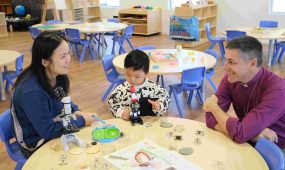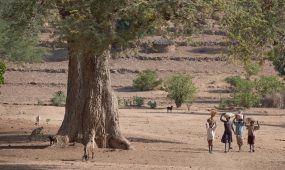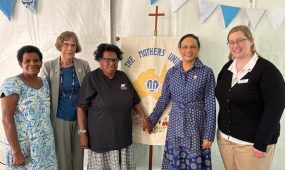Budding beekeepers build apiary at Flinders Farm
News
More than 20 budding beekeepers are learning the art of apiary keeping in a new workshop series at Matthew Flinders Anglican College’s half-hectare Flinders Farm on the Sunshine Coast
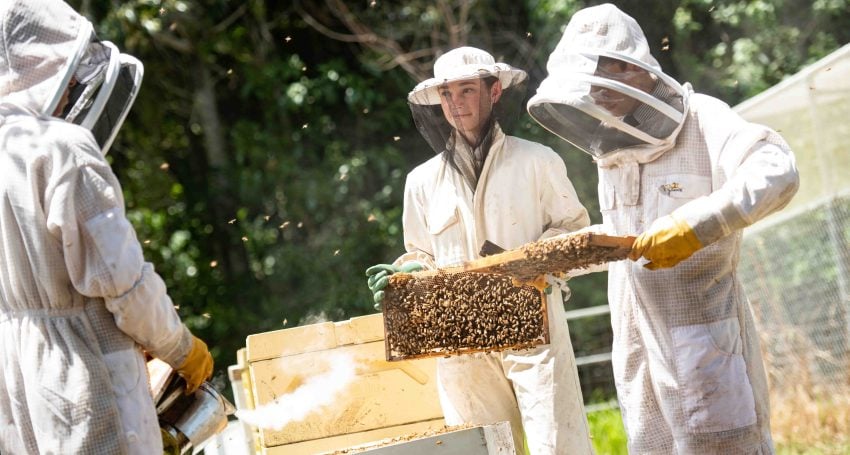
More than 20 budding beekeepers are learning the art of apiary keeping in a new workshop series at Matthew Flinders Anglican College’s half-hectare Flinders Farm on the Sunshine Coast.
Students, parents, grandparents and friends are learning and sharing knowledge alongside farm manager Jeff MacLennan as he hosts a new free beekeeping workshop series on Monday afternoons.
The workshops cover a range of skills, including handmaking bee frames for the hives, caring for the hives, harvesting and bottling the honey to enjoy as a treat.
The workshops will also explore how to repurpose leftover wax, such as for making beeswax candles and food wraps.
Students Beth Handley in Year 9 and Elizabeth Setchell in Year 10 joined the workshops to learn more about one of their favourite animals and hobbies.
Bethany lives on a farm and has beehives, as well as cows, horses and chickens.
“I enjoy being at the Flinders Farm because it’s a chance to be outside and be with the animals such as Erol the emu and the chickens,” Bethany said.
“It’s amazing to see how the beehives at Flinders are coping and to watch as honey and brood stores increase.
“Bees are important as the planet would not function without them. They pollinate plants, creating life so that food chains and webs are supported through the flourishing plant life.
“I love how intricate the life and function of a hive are, as well as the fact that they dance to communicate!”
Advertisement
Elizabeth has two hives at home that she looks after with her father.
“It’s so much fun to compare and share what we do with Farmer Jeff and the other people who attend the workshops,” Elizabeth said.
“I always love a visit to the Flinders Farm to see Erol and to collect some delicious produce.
“It’s really interesting observing the hive, comparing the honey colours and helping teach others how to check a hive.
“I love how smart bees are. They know that hexagons are the most efficient comb shape and can tell exactly who contributes what to the hive.”
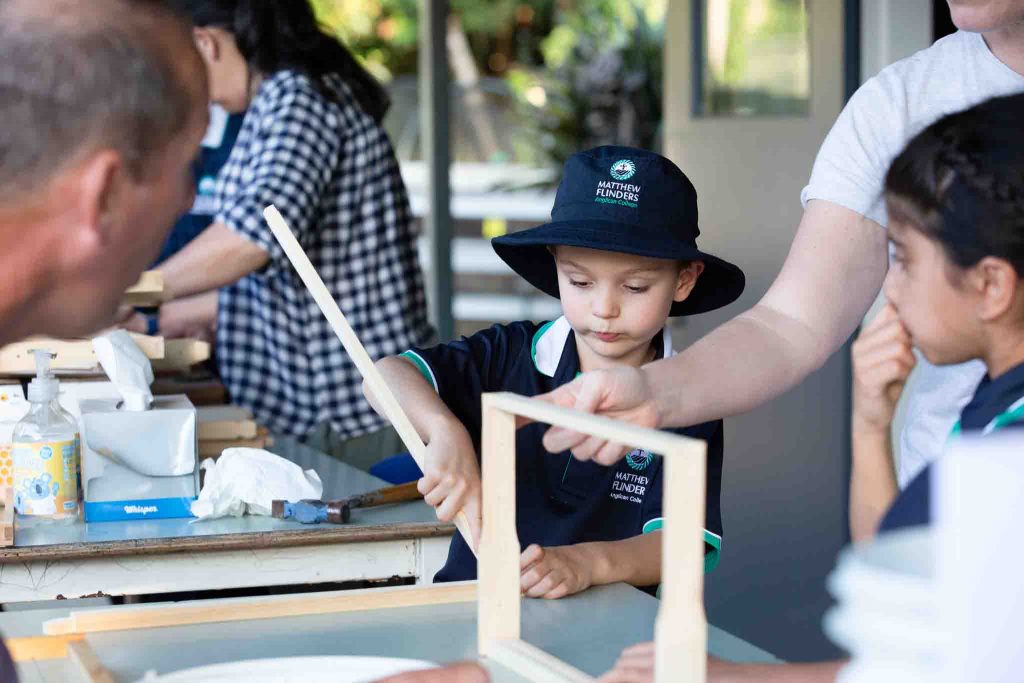
All ages are welcome to participate in the Flinders Farm beekeeping workshop series on Monday afternoons (August 2022)
Farmer Jeff said he was thrilled to share his passion for beekeeping with people of all ages.
“We are fortunate to have 10 productive beehives here at our Flinders Farm and we want to share with our community the experience, rewards and joys of farm life,” Jeff said.
“The workshops are also a chance for people to help, because there is a lot that goes into keeping hives healthy and clean, as well as harvesting the honey,” he said.
Advertisement
“Beekeeping is a great hobby for young people and adults as it brings them in touch with one of nature’s amazing creatures, and unplugs them from today’s flood of digital technology and media.
“Most of the people in our group simply want to try a fun new hobby or are interested in owning hives, but first want to investigate the process before they make a commitment.
“We also have some people who already have their own beehives and want to learn more, share their knowledge and meet like-minded people.”
The Flinders Farm is a vibrant hands-on education hub for children at the college, from little learners in the Flinders Early Learning Centre all the way through to Year 12 students, as well as staff.
Students visit the farm for curriculum learning and are also invited at lunchtimes to help out on the property and enjoy the peace of farm life.
Students develop environmental knowledge and passion through real-world projects, such as irrigation, composting, growing food, caring for animals and harvesting beehives.
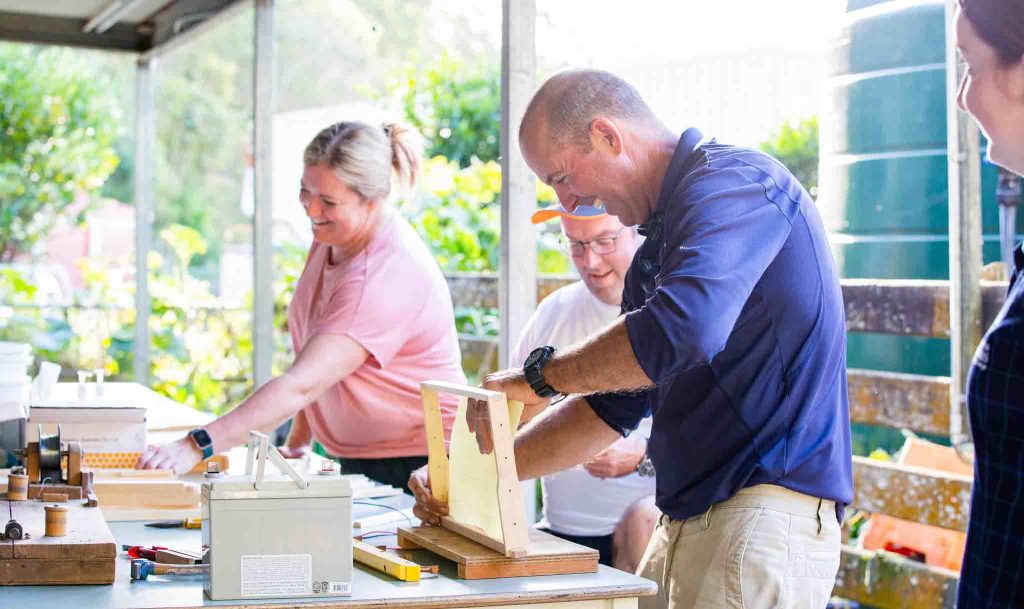
Farmer Jeff McLennan teaches workshop guests the art of handmaking wooden frames for a beehive (August 2022)
The Flinders Farm is nurtured as a home to 14 chickens and an emu called Erol.
It has a 900 square metre orchard with a variety of fruit trees, such as avocadoes, limes, mandarins, oranges, lychees, mangoes and oranges.
The farm also features 600 square metres of vegetable gardens, as well as a compost making facility and commercial worm farm.
College staff and Farmer Jeff also teach in the farm classroom, which was built to a “rustic” design with roller doors on either side that open to let students experience the sights and smells of the farm.
For example, the Year 9 Agricultural Science curriculum is taught at the farm and focuses on how to produce nutrient dense food without pesticides and fungicides.
Students also learn how future generations can mitigate climate change using regenerative farming methods.
The subject is hands-on as students learn how to prepare veggie gardens, care for animals, install irrigation, test soil and interpret soil reports, make compost and compost tea, harvest beehives, and use both plant and soil health monitoring equipment.
To learn more about the Flinders Farm and Matthew Flinders Anglican College, visit the College website.

